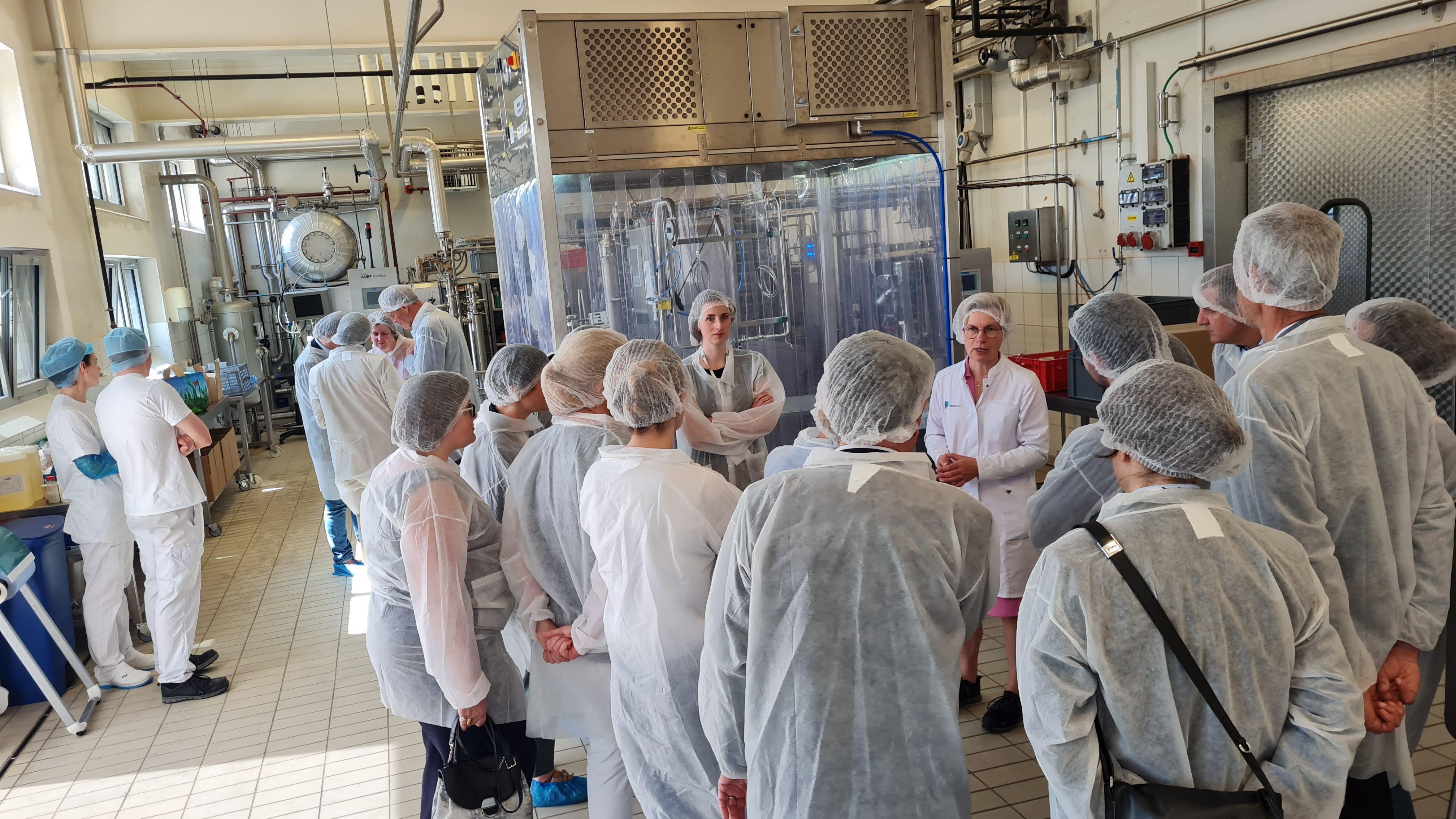Press release World Food Safety Day: 21 European Food Agencies discover in Belgium how artificial intelligence and robots can contribute to food safety
On June 7, not coincidentally World Food Safety Day, the directors of several European food agencies visited the Institute of Agricultural, Fisheries and Food Research (ILVO).
This group of "Heads of Food Safety Agencies" (*) wants to continuously improve food safety by thinking about new risks, monitoring innovations and emphasizing the importance of food safety culture at companies. Through various demonstrations including robots and drones and a visit to a pilot plant, it demonstrated how technology and science can help food companies in a safer production process.
It also provided a glimpse of what future inspections by the agencies might look like. The visit is part of a 3-day visit to Belgium within the European presidency.
(*) The Heads of Food Safety Agencies (HoA) meet regularly to share scientific knowledge and good practices in the field of food safety. The main purpose of these exchanges is to ensure food safety and harmonized implementation and application of European legislation. Obviously, the underlying objective is to maintain the very high level of food safety in Europe.
A drone flies over a grain field to detect plant diseases and weeds and signals a robot that can spray a crop protection agent very locally. A smart camera looks at the composition of hamburgers and can distinguish, without lab analysis, a burger made with ground beef from one with ground pork. A simulated food factory sets up pilot production for new, tasty and also food-safe plant-based drinks. These are just a few of the many examples on how technology and science can support the food industry.

New technologies ensure modern and efficient inspection in the future
More than 40 participants from 21 countries were shown the ways in which production processes and also food itself are already being experimented with in Belgium today, even before they reach the market. "The way we consume is constantly changing. Many consumers are making a shift to a more plant-based diet, we are eating new things like insects, steps are being taken toward cultured meat ... this all brings challenges because not all the risks of these new foods or production processes are known. ILVO offers a solution by taking steps forward in scientific research but also puts it into practice through, for example, the pilot plant "Food Pilot" of ILVO and Flanders' FOOD where companies really get to work by producing and testing their products on a small scale.", Lieve Herman - Head of the Technology and Food Science department at ILVO.
The HoA visit was followed by several demonstrations with robots that use artificial intelligence and imaging technology to perform screenings in agricultural fields, for example. This can help farmers detect and also automatically resolve food safety risks. "For example, drones can detect fungal growth on crops from the air to then target them with crop protection products. This lowers the risk of the fungi in the produce, which is good for the harvest. But the residue levels of the sprays also go down, which in turn is good for consumer health. For the European food agencies, this certainly makes us think about on how we can use such technology in the future for even more efficient inspections.", Herman Diricks - Managing Director FASFC
HoA push for food safety culture in every European food company
The HoA addresses several topical issues that sometimes raise complex questions. These include topics such as technological innovations in controls by the authorities and the principle of food safety culture in food companies.
The principle of food safety culture will be included in the European Codex Alimentarius in 2020 and in European regulations in 2021 and thus must be mandatory in all companies operating in the food chain. "It is important to work with all food companies to see how we can integrate food safety culture into the corporate culture. This is not just about purely following the legislation but a mindset among every employee regardless of position and tailored to the company. I am convinced that this can minimize incidents to better protect consumers.", Herman Diricks - Managing Director FASFC
The FASFC is working with other European health authorities to create greater awareness around food safety culture and how to evaluate and control it.
About FASFC
The Federal Agency for the Safety of the Food Chain (FASFC) has been monitoring the entire food chain, from producer to consumer, for almost 25 years. Some 1,400 employees are responsible for more than 109,000 inspections annually at food companies (farms, manufacturers, slaughterhouses, stores, restaurants, etc.) and take and analyze some 70,000 samples of products within the food chain. The Agency is also responsible for animal and plant health controls and plays an important role in the import and export of food, animals and plants to and from other countries.
Press contact
Hélène Bonte – Spokesperson FASFC M: +32 478 50 59 31 E-mail: helene.bonte@favv.be
Greet Riebbels - Spokesperson ILVO M + 32 486 26 00 14
 Food Pilot
Food Pilot